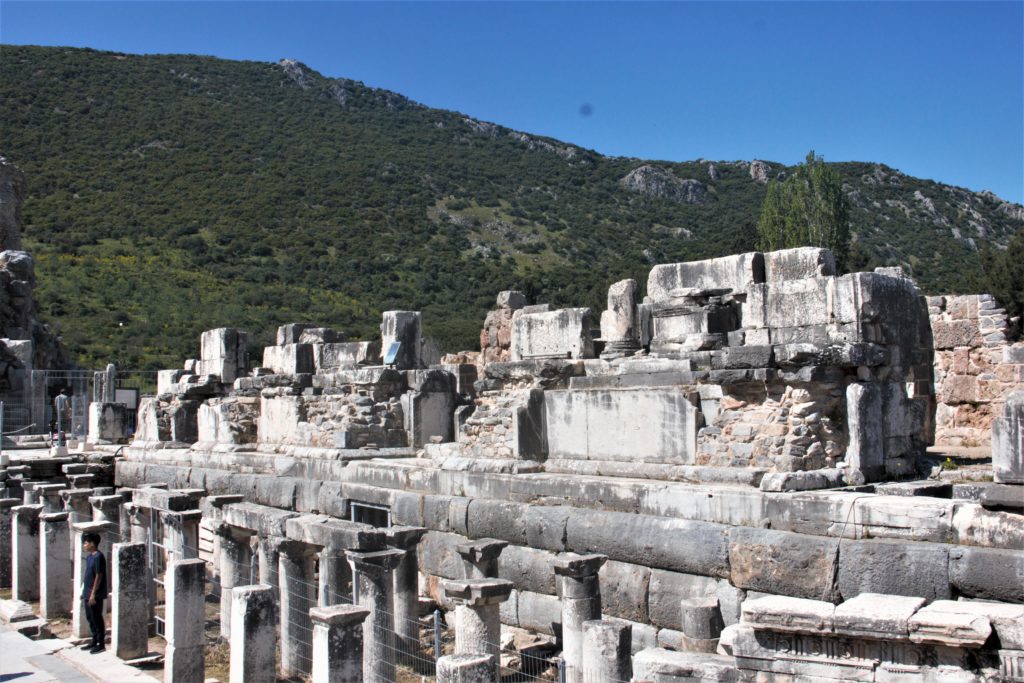Merhaba from Ephesus,
Colleague Bill is an expatriot American who says, “I’ve never been interested in the tourist thing”. He’s talking about the way we’ve become mobile leisure travellers with lots of spare cash and lots of spare time. Few of us can enunciate why we go to places like Ephesus. For most, it’s not even a question to ponder.
Ephesus is an ancient city on the Aegean coast of modern-day Türkiye. It serves no practical function as an urban settlement any longer – and most of today’s visitors are not all that concerned with the sociological aspects. Almost no-one actually reads the interpretation signage, or even the transcripts of the tablets. It’s a safe bet that almost no-one researches the rise and fall of the civilisation before or after their visit. Nobody is conducting archaeological investigation on the spot. So, what are we all doing here?




Ephesus is a popular destination on a sunny weekend in Spring. There are many groups being led by bilingual guides speaking in the tongues of the various coachloads (and shiploads). And they all have different slants on the experience. The Germans are fascinated by the method of construction. The Chinese are jostling for selfie positions. The Americans are cracking loud jokes: “That there is an ancient cat. See? Right there. It’s an ancient cat. Right there. Right there.” The Japanese are worried about too much sun on their skin. The French are intrigued by the plumbing. Singaporeans are conjuring ways to move all of these people. The Indians are wondering why there isn’t a café on the site. The Poms are calculating how to cut corners to minimise the exercise. And the Türks are confused about Roman ruins bringing lucrative modern-day tourism to their country.
Just a few kilometres away, the Temple of Artemis has been reduced to a single column (on which a stork has made its nest!). Much of the stone there was ransacked for other constructions – first by the Byzantines, then by the Ottomans.
Why weren’t these successive occupants determined to preserve the antiquity on that site (as we might be in the age of the tourist)? Why were they so unconcerned about the historical significance of the site? The answer is possibly the same reason that most modern visitors trudge around Ephesus without actually being able to articulate exactly why.
Güle güle from Ephesus
Greg




